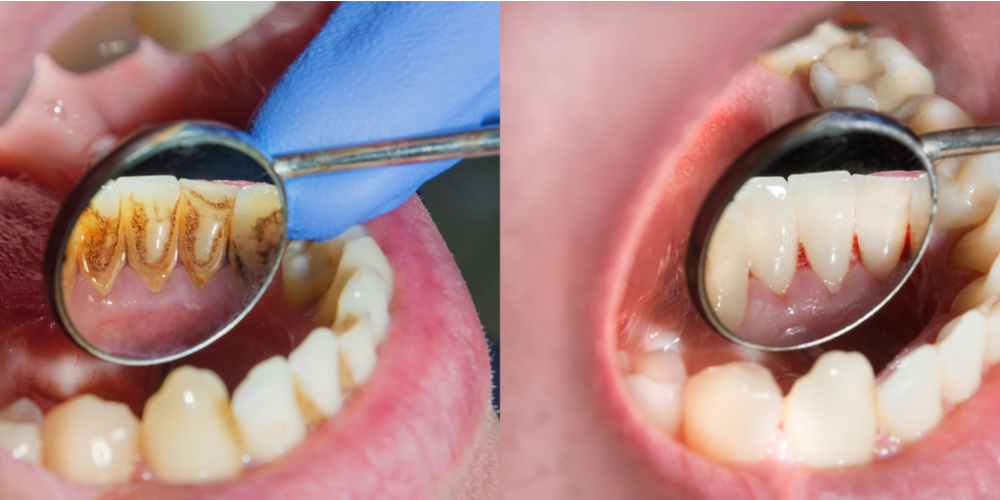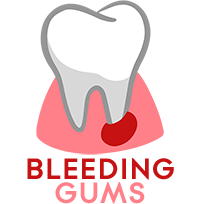
Periodontitis is a serious condition affecting gums and the jaw bones. It can occur if the milder form of gum disease known as gingivitis is left untreated. The signs of periodontitis are easy to spot.
There will be significant reddening of the gums and they are likely to bleed when you brush or floss. Biting into hard food such as some fruits may become difficult and also cause bleeding.
You will experience persistently swelling gums.
Bad breath will occur and you will find that you often have odd, sometimes metallic tastes in the mouth.
It will appear as if you have lengthening teeth. In actual fact this is your gums receding, or retreating from your teeth, making it look like your teeth are growing longer.
In the latter stages, you will find that you have loose teeth.
Periodontitis is caused by a build up of plaque against the gum line of teeth. This build up leads to the inflammation of the periodontium which is the name for tissues that support your teeth and include the sockets of bone in which the teeth sit.
It is avoided by following a standard oral hygiene regime as recommended by dentists. By brushing at least twice a day and flossing you will remove the plaque which forms once you have eaten. You can decrease your chances of contracting periodontitis by eating a healthy, balanced diet and consuming sugary and starchy foods less as these produce the most plaque.
You should be careful not to brush too hard as this can damage the enamel which protects teeth and also harm the gums, making them more prone to inflammation. Soft bristled brushes are available to help with this.
If you are a smoker you should seriously think about refraining as the activity of taking tobacco smoke into the mouth can irritate the gums and make them more likely to become inflamed. If periodontitis does occur then smoking can hamper any efforts to cure it.
Once established, periodontitis can be difficult to deal with. While gingivitis can be reversed through management and heightened dental hygiene techniques, periodontitis requires more drastic action. You will need to have a professional clean at your dental surgery so that the hardened plaque (known as tartar) can be removed. This is not possible at home, no matter how diligently you brush, and it must be done by experts in the surgery with specialist equipment.
In advanced cases, surgery might be required. This is most often done to increase access for tartar removal if tartar has spread below the gum line. Bone grafting might be required if there has been sufficient break down of the bones which hold the teeth in place.
Periodontitis is best avoided because of the pain involved and the possibility of having to endure invasive surgery. This is but another reason why you ought to be vigilant about the state of your gums and report any bleeding to your dentist. Keeping up the habit of visiting your surgery every six months for a check up gives you the best chance of avoiding periodontitis.
